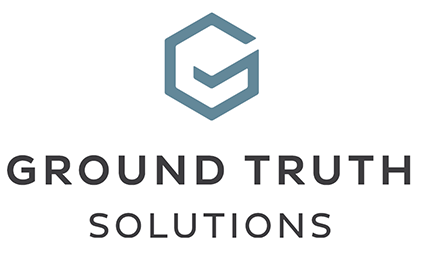Ground Truth Solutions wants affected people’s voices to measure the success of humanitarian programmes. We systematically collect perceptual data that can be translated into actionable recommendations and contribute to programme adjustments. Through collaboration, guidance, and capacity development, Ground Truth acts as a disruptor within the humanitarian sector to center the voices of those we ultimately serve.
- Seek buy-in at all levels. Designing questions and data collection strategies in close collaboration with agency staff helps Ground Truth identify information needs. This initial engagement acquaints headquarter and frontline staff with the complementarity and value-added benefits of Ground Truth’s approach relative to their existing monitoring and evaluation strategies. Ground Truth, in cooperation with an agency’s management team, facilitates dialogue with field staff to establish the understanding that feedback highlights areas of concern and improves the delivery of services. It is not used to “name and shame.” During a recent project with the International Rescue Committee (IRC), Ground Truth’s ability to adjust its approach around IRC staff constraints – as well as IRC’s early efforts to integrate client responsiveness into implementation plans – was crucial in alleviating concerns amongst programme team members. Upholding our core principle, enhancing the voice of affected populations, we enlisted preliminary testing of questions to earn key buy-in and ensure they were likely to reveal issues important to stakeholders of a programme.
- Use the feedback to spur dialogue and learning. As a main element of our approach, as well as a strategy to reduce the effect of survey fatigue, we inform affected people continuously about how their feedback contributes to course correction. Depending on the project, our role might be to provide guidance on how to follow-up on the data and stimulate communication of survey results between agency staff and affected people. We do this through Skype meetings, email, or follow-up visits, and in some cases conduct focus group discussions. These interactions allow agencies to dig deeper into issues that arose during quantitative data collection and determine how to respond. During Ground Truth’s assessment of the Ebola response in Sierra Leone, quantitative data revealed increasing levels of discrimination against those who had been released from quarantine. This information was crucial for encouraging agencies to work with local religious and spiritual leaders to stimulate dialogue and combat discrimination and the perceived marginalization of those impacted by Ebola.
- Keep it light-touch and repeatable. We keep our surveys light-touch – asking few and simple questions in a survey format that can be easily used in the field – to incentivise agencies to integrate Ground Truth’s approach into existing monitoring and evaluation practices beyond the scope of a specific operation. Further, it is necessary that the internal capacity of partner agencies to gather and act upon people’s feedback are reviewed and built-upon. By offering training support from the onset of the operational partnerships, we lay the groundwork for the possibility that our client agencies will continue to integrate our approach into their practices without needing direct assistance in the future. In an on-going project with the International Federation of the Red Cross and Red Crescent Societies (IFRC), Ground Truth is examining how its approach can be integrated into the existing monitoring and evaluation practices of the IFRC Secretariat and its member National Societies. Instead of offering our approach as a one-size “add-on”, Ground Truth provides guidance on how its methodology can be adjusted to suit any particular context and needs of the National Societies.
Each completed round of surveys provides us with the opportunity to capture learning that directly leads to improvements in our own processes and methodology, as well as provides further insight to how agencies of all types can better embed client responsive practices into their programming.
Andrew Hassan is a Programme Analyst at Ground Truth Solutions where he contributes to the analysis of survey data and dissemination of project findings. Andrew holds a B.A. in International Development Studies from McGill University and a Master’s in Development Management from the London School of Economics and Political Science.









